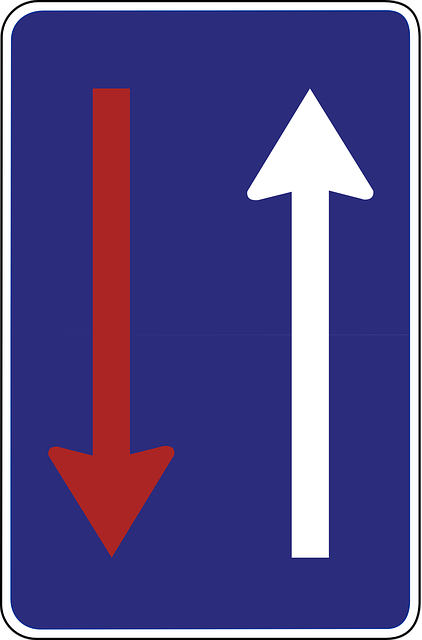In the UK, compliance with regulatory documents is paramount for entities operating within both public and private sectors. To ensure that all stakeholders, including those who speak languages other than English, can understand these documents, certified translations provided by authorized UK translation services are indispensable. These services are recognized by UK regulatory bodies and are essential for companies to submit documentation in both English and the original language to fulfill compliance standards. The translators' expertise lies in accurately conveying legal nuances and terminology across different languages while adhering to the UK's stringent legal requirements. Their work is critical for maintaining transparency and trust within regulated industries, ensuring the integrity of legal standing and market position by preserving the accuracy of regulatory documents. The translation services must possess professional qualifications and follow best practices set by authorities like the Home Office or the Professional Translators' Association (PTA) to ensure that their translations are legally sound and recognized as authoritative versions. With a robust history in this niche, these UK translation services deliver precise and reliable certified translations that facilitate seamless compliance with UK regulations across various sectors. This commitment to precision and adherence to legal standards by the translation services is vital for upholding the integrity of regulatory documents in the UK, safeguarding against misinterpretation or error, and mitigating the risks associated with non-compliance.
navigator the complexities of regulatory compliance within the UK, businesses often encounter the necessity for precise and authoritative translations. This article delves into the critical role of certified translations in adhering to UK regulatory processes, emphasizing compliance with statutory requirements. We explore the importance of engaging professional translation services that specialize in regulatory documents, ensuring accuracy and legal validation. Key factors influencing the selection of a reliable UK translation service are examined, alongside navigating the intricate legal framework governing certified translations. This guidance is indispensable for organizations operating within or seeking entry into the UK market.
- Understanding the Necessity of Certified Translations in UK Regulatory Processes
- The Role of Professional Translation Services in Ensuring Compliance
- Key Considerations for Choosing a UK Translation Service for Regulatory Documents
- Navigating the Legal Framework and Best Practices for Certified Translations in the UK
Understanding the Necessity of Certified Translations in UK Regulatory Processes

Within the intricate web of regulatory processes in the UK, compliance is paramount for both public and private sector entities. As such, regulatory documents must be accessible and understandable to all stakeholders, including those whose first language may not be English. In this context, certified translations play a critical role. These translations, provided by specialized UK translation services, are legally recognized and attest to the accuracy of the translated content. They ensure that foreign-language documents meet the stringent requirements set forth by UK regulatory bodies. For instance, companies engaging with UK markets must often present documentation in both English and the original language for compliance purposes. Certified translations from trusted providers not only facilitate clear communication but also verify that the documents adhere to legal standards, thereby avoiding potential pitfalls associated with misinterpretation or non-compliance. This level of precision is crucial for maintaining transparency and trust within regulated industries, ultimately safeguarding both legal standing and market position in the UK.
The Role of Professional Translation Services in Ensuring Compliance

In the UK, regulatory documents often require precise and accurate translations to ensure compliance with statutory regulations. The role of professional translation services in this context is pivotal, as they provide translations that meet the stringent standards set by UK authorities. These services are adept at navigating the complexities of language nuances and legal terminology, ensuring that every word conveys the exact meaning intended. This precision is not just a matter of semantics; it is critical for the documents to be legally valid and accepted in UK regulatory processes. Professional translators possess specialized knowledge and expertise in both the source and target languages, as well as a comprehensive understanding of the relevant legal frameworks. They work diligently to bridge communication gaps between entities operating within the UK and their international counterparts, facilitating seamless compliance with regulations that govern various sectors. By leveraging the expertise of these translation professionals, businesses and individuals can submit regulatory documents with confidence, knowing that their translations are accurate, reliable, and compliant with all necessary legal requirements.
The commitment to accuracy and adherence to legal standards by professional UK translation services is unwavering. They are well-versed in the specificities of regulatory documentation and the importance of translating such documents without any room for misinterpretation or error. This meticulous approach not only upholds the integrity of the original content but also ensures that the translated documents align with both the letter and the spirit of UK law. In an environment where non-compliance can lead to significant legal and financial repercussions, the services provided by these professionals are invaluable, offering peace of mind for those navigating the complex world of regulatory compliance in the UK.
Key Considerations for Choosing a UK Translation Service for Regulatory Documents

When navigating the complex landscape of regulatory compliance in the UK, the accuracy and conformity of translated documents are paramount. Choosing a translation service that specializes in regulatory documentation is crucial to ensure that all legal requirements are met. Reputable UK translation services offer expertise in translating compliance and regulatory documents, ensuring that language barriers do not impede the understanding or enforcement of such documents. It is essential to select a provider with a proven track record in this niche, as they will be well-versed in the nuances of both source and target languages, as well as the specific terminologies employed within the UK’s regulatory framework. Additionally, opt for services that provide certified translations, which are legally recognized and can accompany your documents through their regulatory process journey. Verification of the translation service’s credentials, including their certifications and accreditations, is a prudent step to guarantee the authenticity and reliability of the translated texts. By prioritizing these considerations, businesses and individuals can ensure that their regulatory documents are accurately conveyed, facilitating smoother compliance with UK regulations.
Navigating the Legal Framework and Best Practices for Certified Translations in the UK

When engaging with UK regulatory processes, the necessity for accurate and certified translations cannot be overstated. The Legal Framework governing such translations is intricate, mandating that all compliance and regulatory documents adhere to strict standards of precision and authenticity. Translators must possess a deep understanding of both the source and target languages, as well as the legal nuances within the UK’s multifaceted legal system. Certified translations are a cornerstone in this framework, providing authoritative interpretations that withstand scrutiny from regulatory bodies. To ensure compliance, UK translation services must follow best practices that include adhering to specific guidelines set by relevant authorities such as the Home Office or the Professional Translators’ Association (PTA). These guidelines typically require translators to be professionally qualified and to provide a statement of accuracy alongside their translations. Additionally, the use of official stamps or embossed seals, along with the translator’s contact information, adds an additional layer of credibility to certified documents. By adhering to these protocols, UK translation services can facilitate seamless navigation through regulatory processes, ensuring that all translated content is not only understandable in its target language but also legally equivalent to the original text. This commitment to accuracy and compliance is paramount for any organisation or individual interacting with UK regulators and seeking to operate within the UK’s legal landscape.
When engaging with UK regulatory processes, the critical role of certified translations ensures that all regulatory documents comply with British legal standards. Professional translation services are indispensable in this context, offering precision and adherence to statutory requirements. Selecting a reliable UK translation service is paramount for navigating the complexities of these processes. By understanding the necessity of certified translations and adhering to the legal framework and best practices, entities can seamlessly integrate into the UK’s regulatory environment, thereby upholding compliance with utmost efficiency and accuracy.
